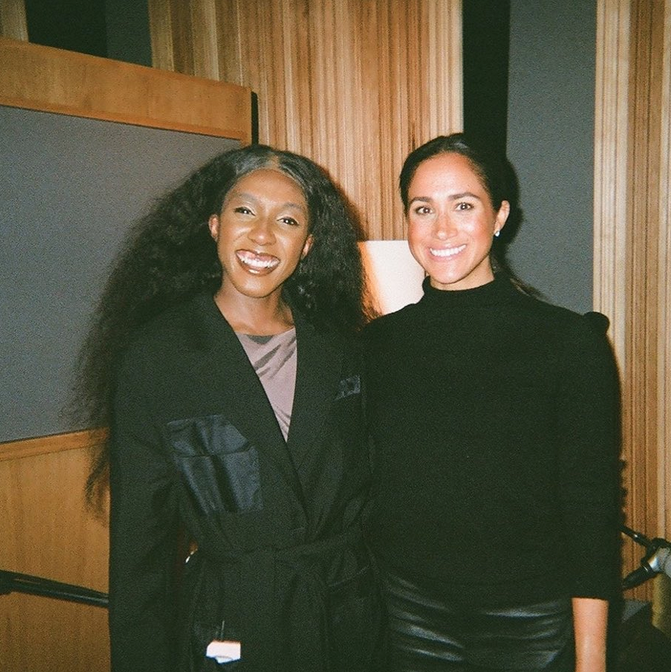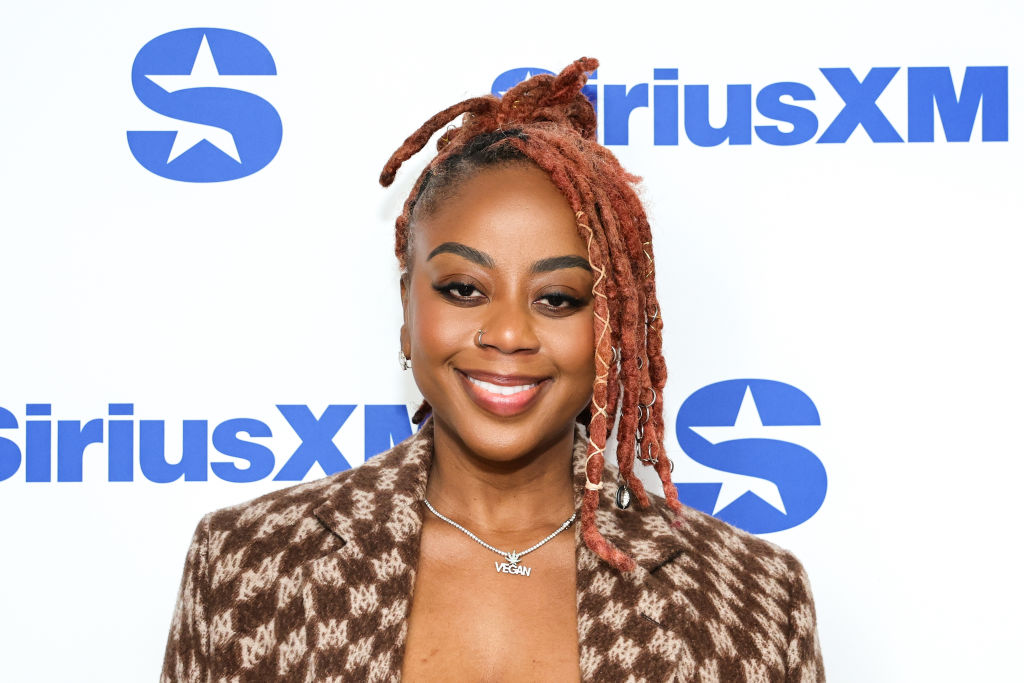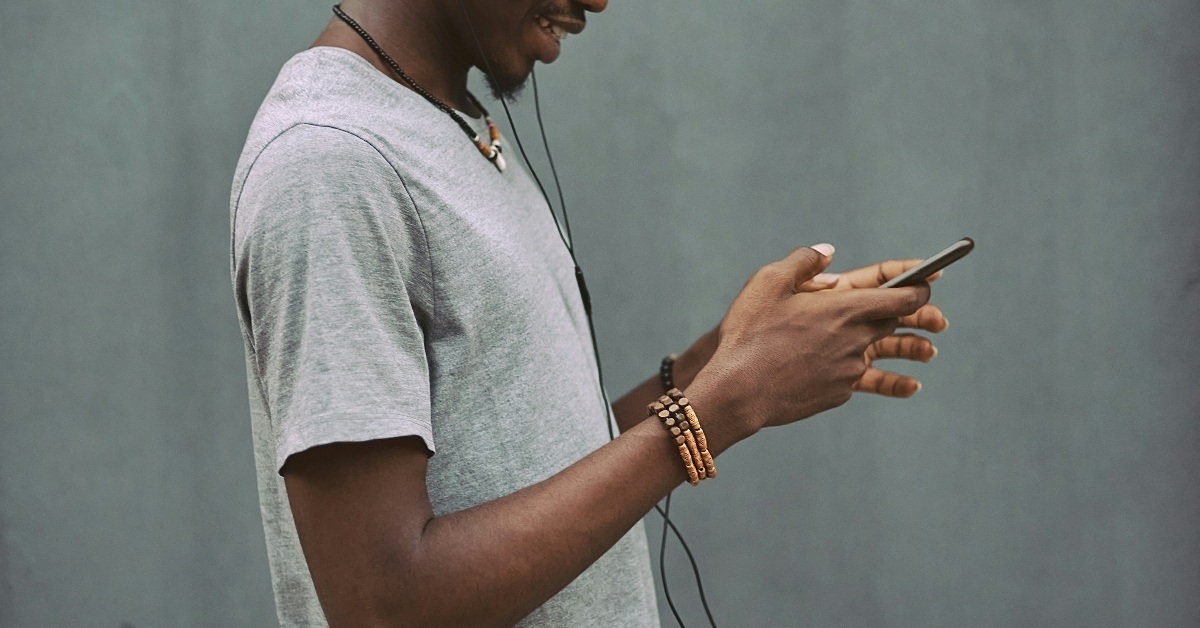Meghan Markle Reveals She’s 43% Nigerian, Unpacks The ‘Angry Black Woman’ Stereotype With Issa Rae & Ziwe
Meghan Markle reveals she’s 43% Nigerian on her "Archetypes" podcast where she also unpacks the “angry black woman” stereotype with Black creatives Issa Rae and Ziwe. More about their discussion inside… Meghan Markle invited Black creatives Issa Rae (“Insecure” creator and star), Nigerian-American writer/late night talk show host Ziwe Fumudoh, and professor Emily Bernards for a new episode of her “Archetypes” podcast. While chatting with the ladies, the Duchess of Sussex revealed she took a genealogy test to find out more about her background. “I just had my genealogy done a couple of years ago; I’m 43% Nigerian,” she revealed. Lord. We're sure the British media will take this information and run with it. Ziwe asked Meghan is she was Igbo or Yoruba, to which the Duchess of Sussex responded: “I’m going to start to dig deeper into all this because anybody that I’ve told, especially Nigerian women, are like ‘What?!’” Meghan’s mother, Doria Ragland, is African-American, while Meghan's father, Thomas Markle, is Dutch-Irish. The former “Suits” actress unpacked the “angry black woman” stereotype with her guests, unpacking stereotypes that label Black women as temperamental, overly loud, and prone to violence. The three women opened up about how the stereotype inspired them to change the entertainment industry. To start off the conversation, Meghan shared how she read a book during the COVID-19 pandemic called “Algorithms of Oppression,” which examines how the digital age has influenced our perception of each other. The book talked about how “autofill features” in search engines have the potential to influence people’s thoughts about other people. The book’s author typed “why are Black women so...” on a search engine, resulting in options like, “Why are Black women so loud?”; “Why are Black women so mean?”; and “Why are Black women so angry?” “Those were the seeds being planted,” Meghan said. “We all know that sometimes things make you feel angry or sad or hurt or upset — and that’s not a gender or racially specific feeling. Yet, this trope of the angry Black woman, it persists.” The 41-year-old former actress shared her own experience of encountering the “angry black woman” stereotype in Hollywood. “I remember when I was auditioning, and even the idea of Black roles — I remember those casting sheets where the description of the character, she always had to have an edge or an attitude,” she said. Issa Rae backed her claims with how Black women were depicted on television in the early 2000s on reality shows like “Flavor of Love.” “It was this ruthless Black woman or this uncouth Black woman,” Issa noted. “We were made to laugh at them as opposed to or to laugh with them in some ways. But it was just like these caricatures of Black women.” The depiction of Black women in the media is what inspired Issa to fight for the title “Insecure.” “I want to be able to show that not all women are like this. I don’t feel fierce, flawless all the time,” Issa explained. “These characters aren’t that all the time, and that’s OK.” She added: “It was like we overcorrected this other narrative, and now we couldn’t be human. We were superhuman.” The "Rap Sh!t" creator mentioned how other Black women in Hollywood told her that being afraid of upsetting people will get her nowhere, and how she had to come to terms with the fact that she may be labeled as a "b*tch." "I never seek out being a b*tch, that’s not an aspirational thing for me," she said. "I take the fear of being labeled as that when I want to convey my point of view, when I want to express my disappointment in something. When I want things to be better. Like, I take away the fear of being labeled as such. I shouldn’t have to fear that if I want something to be great." Ziwe joined in, sharing her own experience of how the stereotype oftentimes causes people to be intimidated by her. “Usually, when I’m talking to an interviewer, the first thing that they say to me is, ‘I’m terrified of you,’” she remarked. “I’m like, Oh my God, that hurts my feelings. I’m a sensitive Pisces. Like, I don’t want you to be scared of me. That’s not my goal.” Listen to the clip below: Meghan Markle Discusses the Angry Black Woman Trope: Being 'Particular' Does Not 'Make You Difficult' pic.twitter.com/9w27pTSqcf — People (@people) October 25, 2022 You can listen to the full podcast here. We're glad they said it! Photo: Ziwe's IG


Meghan Markle reveals she’s 43% Nigerian on her "Archetypes" podcast where she also unpacks the “angry black woman” stereotype with Black creatives Issa Rae and Ziwe. More about their discussion inside…
Meghan Markle invited Black creatives Issa Rae (“Insecure” creator and star), Nigerian-American writer/late night talk show host Ziwe Fumudoh, and professor Emily Bernards for a new episode of her “Archetypes” podcast.
While chatting with the ladies, the Duchess of Sussex revealed she took a genealogy test to find out more about her background.
“I just had my genealogy done a couple of years ago; I’m 43% Nigerian,” she revealed.
Lord. We're sure the British media will take this information and run with it.
Ziwe asked Meghan is she was Igbo or Yoruba, to which the Duchess of Sussex responded:
“I’m going to start to dig deeper into all this because anybody that I’ve told, especially Nigerian women, are like ‘What?!’”
Meghan’s mother, Doria Ragland, is African-American, while Meghan's father, Thomas Markle, is Dutch-Irish.
The former “Suits” actress unpacked the “angry black woman” stereotype with her guests, unpacking stereotypes that label Black women as temperamental, overly loud, and prone to violence. The three women opened up about how the stereotype inspired them to change the entertainment industry.
To start off the conversation, Meghan shared how she read a book during the COVID-19 pandemic called “Algorithms of Oppression,” which examines how the digital age has influenced our perception of each other. The book talked about how “autofill features” in search engines have the potential to influence people’s thoughts about other people. The book’s author typed “why are Black women so...” on a search engine, resulting in options like, “Why are Black women so loud?”; “Why are Black women so mean?”; and “Why are Black women so angry?”
“Those were the seeds being planted,” Meghan said. “We all know that sometimes things make you feel angry or sad or hurt or upset — and that’s not a gender or racially specific feeling. Yet, this trope of the angry Black woman, it persists.”
The 41-year-old former actress shared her own experience of encountering the “angry black woman” stereotype in Hollywood.
“I remember when I was auditioning, and even the idea of Black roles — I remember those casting sheets where the description of the character, she always had to have an edge or an attitude,” she said.
Issa Rae backed her claims with how Black women were depicted on television in the early 2000s on reality shows like “Flavor of Love.”
“It was this ruthless Black woman or this uncouth Black woman,” Issa noted. “We were made to laugh at them as opposed to or to laugh with them in some ways. But it was just like these caricatures of Black women.”
The depiction of Black women in the media is what inspired Issa to fight for the title “Insecure.”
“I want to be able to show that not all women are like this. I don’t feel fierce, flawless all the time,” Issa explained. “These characters aren’t that all the time, and that’s OK.” She added: “It was like we overcorrected this other narrative, and now we couldn’t be human. We were superhuman.”
The "Rap Sh!t" creator mentioned how other Black women in Hollywood told her that being afraid of upsetting people will get her nowhere, and how she had to come to terms with the fact that she may be labeled as a "b*tch."
"I never seek out being a b*tch, that’s not an aspirational thing for me," she said. "I take the fear of being labeled as that when I want to convey my point of view, when I want to express my disappointment in something. When I want things to be better. Like, I take away the fear of being labeled as such. I shouldn’t have to fear that if I want something to be great."
Ziwe joined in, sharing her own experience of how the stereotype oftentimes causes people to be intimidated by her.
“Usually, when I’m talking to an interviewer, the first thing that they say to me is, ‘I’m terrified of you,’” she remarked. “I’m like, Oh my God, that hurts my feelings. I’m a sensitive Pisces. Like, I don’t want you to be scared of me. That’s not my goal.”
Listen to the clip below:
Meghan Markle Discusses the Angry Black Woman Trope: Being 'Particular' Does Not 'Make You Difficult' pic.twitter.com/9w27pTSqcf
— People (@people) October 25, 2022
You can listen to the full podcast here.
We're glad they said it!
Photo: Ziwe's IG












